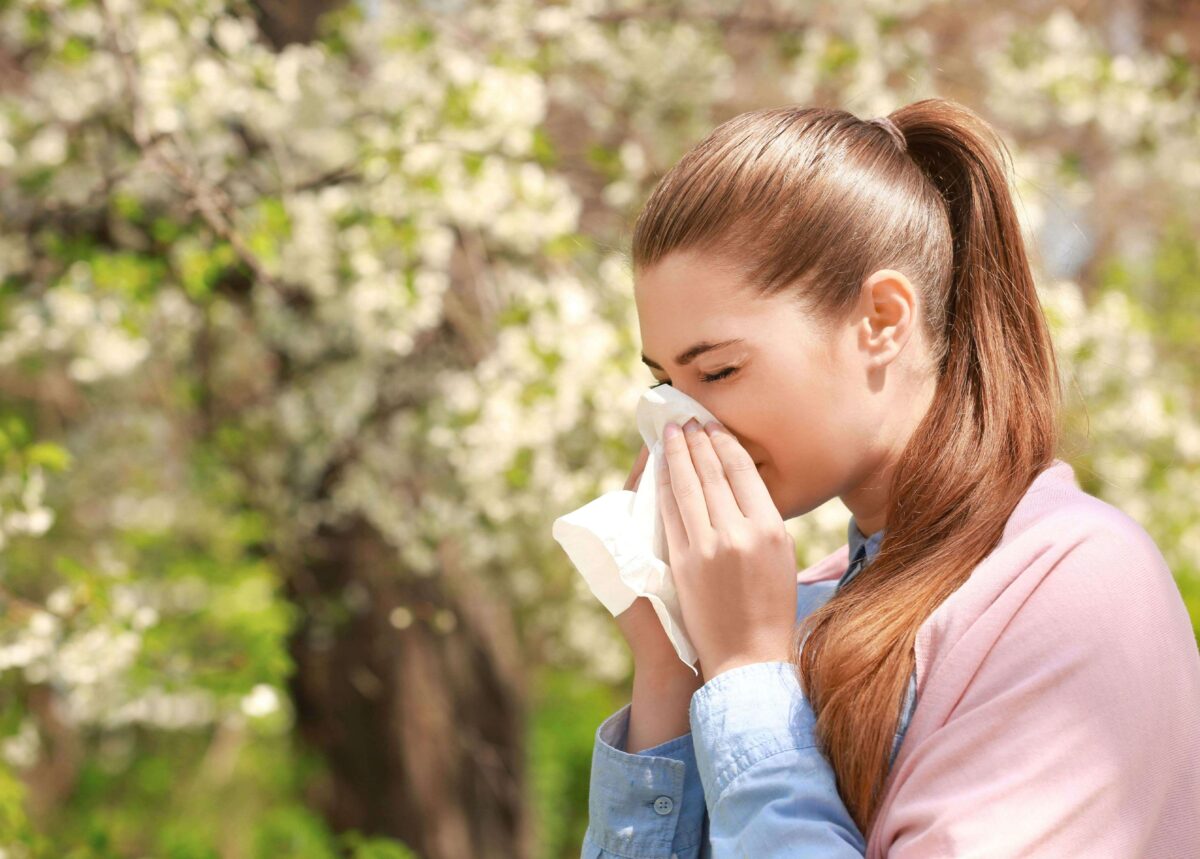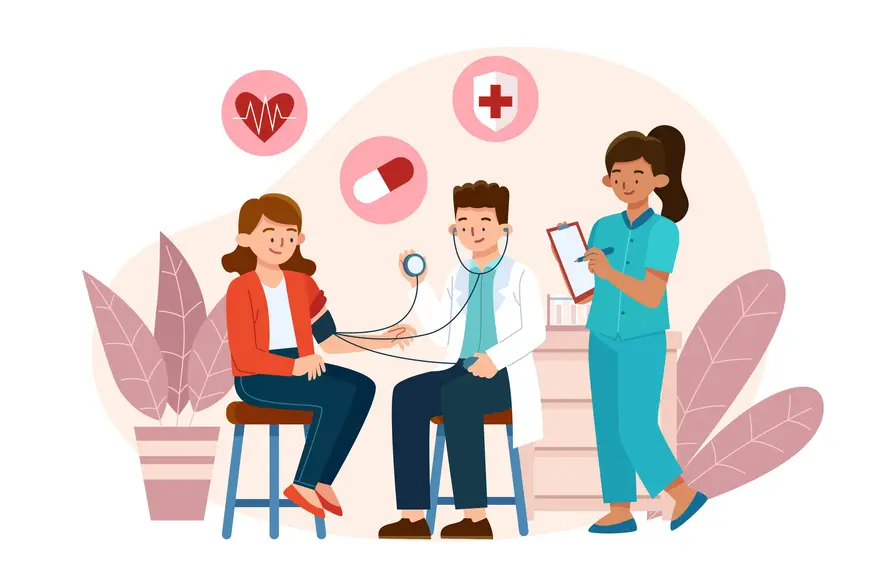In our daily lives, we encounter countless substances, from foods to pollen and even certain medications. While most of these substances are harmless, for some individuals, their immune systems perceive them as threats, triggering a complex series of reactions known as allergies.
Allergy is a widespread health concern affecting millions of individuals worldwide. From mild to severe, exploring the allergy symptoms and treatment options is crucial to managing and alleviating discomfort. Read on to discover more about allergies so that you can enjoy the world around you!
Response of Immune System to Allergens
The immune system is designed to protect the body from harmful pathogens, such as viruses and bacteria. However, in the case of allergies, the immune system mistakenly identifies a harmless substance, known as an allergen, as a threat and launches an inappropriate response.
- When an allergen enters the body, it triggers the production of antibodies called immunoglobulin E (IgE).
- These antibodies attach themselves to specialized cells called mast cells, which are found in various tissues throughout the body, including the respiratory system, skin, and digestive tract.
- Upon subsequent exposure to the same allergen, the IgE antibodies on the mast cells recognize it and signal the cells to release potent chemical mediators, such as histamine, leukotrienes, and cytokines.
- These chemical mediators are responsible for the various symptoms associated with allergic reactions. They cause inflammation, increased mucus production, constriction of airways, and other physiological changes that aim to expel the perceived threat from the body.
While this response is intended to protect the body, it can result in unpleasant and sometimes severe symptoms, depending on the type of allergy and the individual’s sensitivity.
Different Types of Allergies
Some of the common types of allergic reactions, along with their symptoms and complications, are:
1. Seasonal Allergy
Seasonal allergy is a form of environmental allergy and includes various indoor and outdoor allergens. People with seasonal allergies usually react to more than one allergen. Some common triggers are dust mites, pet dander, mold spores and more. These types of allergies include running nose, inflamed sinuses, postnasal drip and more.
2. Contact allergy
Contact allergy is a form of skin allergy that occurs when certain factors come into contact with the skin and trigger the release of histamine. The reaction is usually limited to the skin and induces rash, eczema, hives, or skin inflammation. Some common factors included in the contact allergy include poisonous plants, dust, dander, and latex.
3. Food allergy
Most food allergies happen when your body produces antibodies against certain food items within a few minutes of consuming them. The allergic symptoms include itching over the body or a specific body part, nausea, vomiting or swelling of the face, throat and tongue. The following food items cause most food allergic reactions
- Milk
- Soy
- Eggs
- Wheat
- Peanut
- Tree nuts
- Sesame
- Fish and Shellfish
To prevent the condition, the FDA instructs every food manufacturer to disclose major food allergens on their product labels clearly. Remember that food allergies are different from food intolerance reactions like gluten sensitivity or lactose intolerance.
4. Drug Allergy
A drug allergy happens when your body shows an immune response to a medication. The reaction occurs when the immune system considers an ingredient in the drug as harmful to your body. Some of the most common allergy-inducing medications are
- Insulin
- Penicillin and related antibiotics
- Iodine-related medications
- Seizure medications
- Sulfonamide medications
5. Insect Allergy
Insect allergy is also one of the common allergic reactions among people. The allergens include ant bites, wasps, bee stings and cockroaches. In certain situations, insect allergies might trigger anaphylaxis. There are several life-threatening allergic reactions to a substance. When you experience an anaphylactic reaction, your body goes into shock from the flood of histamines.
Common Symptoms of Allergies
Symptoms of allergies differ for each person, depending on their overall health condition and the substance causing the allergic reaction. Some typical signs include.
- Sneezing and itchy, runny or stuffy nose (Allergic rhinitis)
- Itching around the mouth, nose, eyes or roof of the mouth.
- Swelling on facial features, lips, tongue (Angioedema)
- Skin rashes (allergic contact dermatitis, eczema)
- Hives
- Wheezing
- Cough
- Shortness of breath
- Headache
- Nausea and vomiting
- Asthma attack
- Anaphylaxis (a type of severe allergic reaction)
Severe Symptoms of Allergic Reactions
When the allergic reaction is left untreated for a long time, it will lead to certain severe allergy symptoms:
- Nasal congestion
- Headache
- Sore throat
- Postnasal drip
- Decreased sense of smell
- Sinus infections (or sinusitis)
- Ear infections
- Dark circles or puffiness under the eyes
- Fatigue
- Loss of consciousness
Risk Factors of Allergies
While the exact causes of allergies are still being researched, certain risk factors of allergies are likely to induce the reactions. Some of them are,
- Genetics: If one of your closest family members has allergies, you are most likely to have them. Food allergies are linked to a specific gene that is passed from parent to child.
- Asthma: If the parent or the child has asthma, they are also at increased risk of developing allergic reactions. This chronic lung condition is often a complication of allergy triggered by the reaction.
- Childhood Exposure: Early exposure to certain allergens, such as peanuts or pets, can increase the risk of developing allergies later in life.
- Age: Children and young adults are more susceptible to developing allergies, although they can occur at any age.
Summing Up
Allergy is an immune response developed on exposure to certain allergic factors. Identifying the type of allergy will help you manage or treat the condition better. Additionally, living with any type of allergy is challenging and can impact the quality of every individual’s life.
At Apollo Diagnostics, we offer a wide range of tests to diagnose allergic reactions and help you understand food sensitivities, seasonal allergies, and other allergic reactions. Our experts provide the right guidance and resources to manage your allergies effectively, empowering you to live life to the fullest.
Frequently Asked Questions (FAQs)
Q1. What are the basics of allergic reactions?
The primary function of the immune system is to identify foreign substances in the body and eliminate them. Allergies are defined as an overreaction of your body’s immune system to a harmless, foreign element that enters the body. These allergens include pollen, dust or animal dander.
Q2. Can allergies be cured completely?
Unfortunately, it is not possible to completely cure the allergies. However, with the right lifestyle changes and medications, you can control the symptoms. For instance, you have to make a few changes to your surroundings and figure out how to stay away from the factors that trigger your allergy attacks.
Q3. How long do allergies last?
Allergies usually cause itchy, watery eyes, which is not associated with cold or flu. Common symptoms of allergy will last as long as you are exposed to the allergen. It typically takes 6 weeks during pollen seasons in fall, summer, and spring. For instance symptoms such as colds and flu will not last beyond two weeks.
 +91 7862977056
+91 7862977056  +91 79 26936688
+91 79 26936688 



